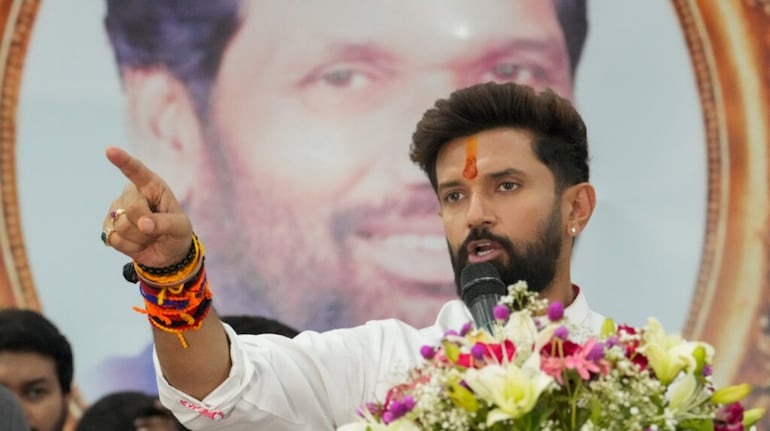
Union Minister Chirag Paswan has voiced opposition to administrative orders in certain BJP-ruled states that restrict the sale of meat, fish, and eggs during the nine-day Navratri festival from March 30 to April 6. Speaking to the media after a meeting of NDA allies at Bihar Chief Minister Nitish Kumar's residence in Patna, Paswan referred to such restrictions as "unnecessary" and labeled them as "trash talk."
Paswan emphasized that such measures interfere with personal religious practices and suggested that political entities should stay out of such matters. He pointed out that people from different faiths have coexisted peacefully for generations, maintaining mutual respect without political intervention.
Calls to Keep Faith Private and Politics Separate
Paswan argued that issues such as where people perform religious rituals or whether shops remain open should not be politicized. “These matters are personal,” he said, adding that political parties should focus on more significant concerns instead of making statements about religious practices.
He expressed concerns over attempts to divide society for political gains and reiterated that religious beliefs should remain personal. “Political parties should refrain from commenting on religion. These are matters of personal faith,” Paswan added.
Context of State-Level Restrictions
The minister's comments came in response to recent administrative decisions in Madhya Pradesh and Uttar Pradesh. In Madhya Pradesh, the Maihar district administration issued an order under Section 163 of the BNS, banning the sale of meat, fish, and eggs within the Maihar Nagar Palika limits from March 30 to April 7.
In Uttar Pradesh, the Yogi Adityanath government implemented a ban on meat sales within 500 meters of religious places during the Chaitra Navratri period and ordered the closure of all illegal slaughterhouses. Additionally, for Ram Navami on April 6, the state mandated a complete ban on meat sales across the state.
Appeal to End Political-Religious Interference
While avoiding direct criticism of these administrative orders, Paswan suggested that many issues stem from the overlap between politics and religion. He remarked that most societal tensions would be resolved if religious organizations stopped endorsing political parties and if politicians refrained from interfering in religious domains.
He concluded, “Nearly 90 percent of problems would disappear if political parties and religious bodies stayed within their own boundaries. Conflicts often arise when politics interferes with faith.”
Read More: The Hostel Segregation Row What the SC Stay on UGC 2026 Regulations Means for You

 Share
Share


_1531794722_100x75.jpg)
_591321350_100x75.jpg)